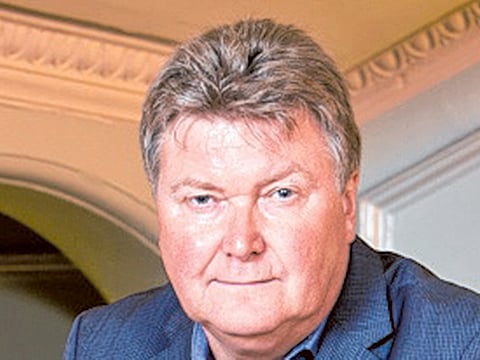Top tips for developing your career
Career coach Michael Moran reveals how to stay employable with job satisfaction

DUBAI: Career coach Michael Moran has three key pieces of advice for those thinking of their careers: plan your career, prepare for your interview and develop a network.
“Most people plan their holidays, which is two weeks and in six weeks will be a distant memory, [more] than they do their careers, which will be 40 to 50 years working five days a week,” said Moran, founder and CEO of career management consultancy 10Eighty, which has offices in London, Manchester and Dubai.
“Without doubt, the failure to plan your career will lead you often to a destination which is a clear cul-de-sac, and you don’t have job satisfaction and you don’t have clear success.”
He added that the real key was “planning in alignment with the way the marketplace is going. Very few people do that, but those who do have employability.”
When going for an interview, he said, candidates should know the organisation, where they can add value to it, and know the people interviewing them.
Developing a network, he said, was not simply a matter of knowing people, but of knowing people who know your goals, who are prepared to help you because you’ve invested time in them, and who are clear about how you present yourself.
“If you’ve got those three things in alignment ... the job will find you,” he said.
Most people don’t plan their careers because they think it’s too hard, he said. “It shouldn’t be that difficult, but certainly in terms of people leaving the world of education for the world of work, I find very few educational establishments give people help in planning their career.
“It’s OK if you know what you want to do, and at 16 you realise you want to be a doctor, but for the overwhelming majority of people, they don’t know.”
Career planning is not limited to school leavers, he said. In the modern workplace, people may engage in several careers before retirement, not only through necessity, but by personal choice.
The three keys to planning a career where knowing why you want to do something, knowing how to do it, and knowing who can help you find the right job.
Knowing why you want a particular career requires knowing your values and your motivation. Knowing how to do a job requires knowing what you’re good at and enjoy doing. And your network will provide the contacts to help, he said.
But he said the real trick with career planning was to anticipate future needs — what ice hockey player Wayne Gretsky called “skating to where the puck is going”. Someone already in a career should be able to spot the trends for themselves, but a newcomer should once again rely on their network to guide them.
“The trick around managing your career employability is making a decision to invest in the things the marketplace wants to buy. Thereby is the risk, isn’t it?”
A good network — and especially a mentor both within your organisation and one outside — can help identify the skills that are likely to be employable, he added.
“I’m often asked, ‘Will my age count against me?’ If today you’re a 72-year-old Java programmer and you can write apps, you can get a job in about 48 hours. If you’re a 32-year-old telex operator, you’re unemployable.
“The issue about age is it requires you to make some decisions about self-investment. As you get older you tend to self-invest less.”



